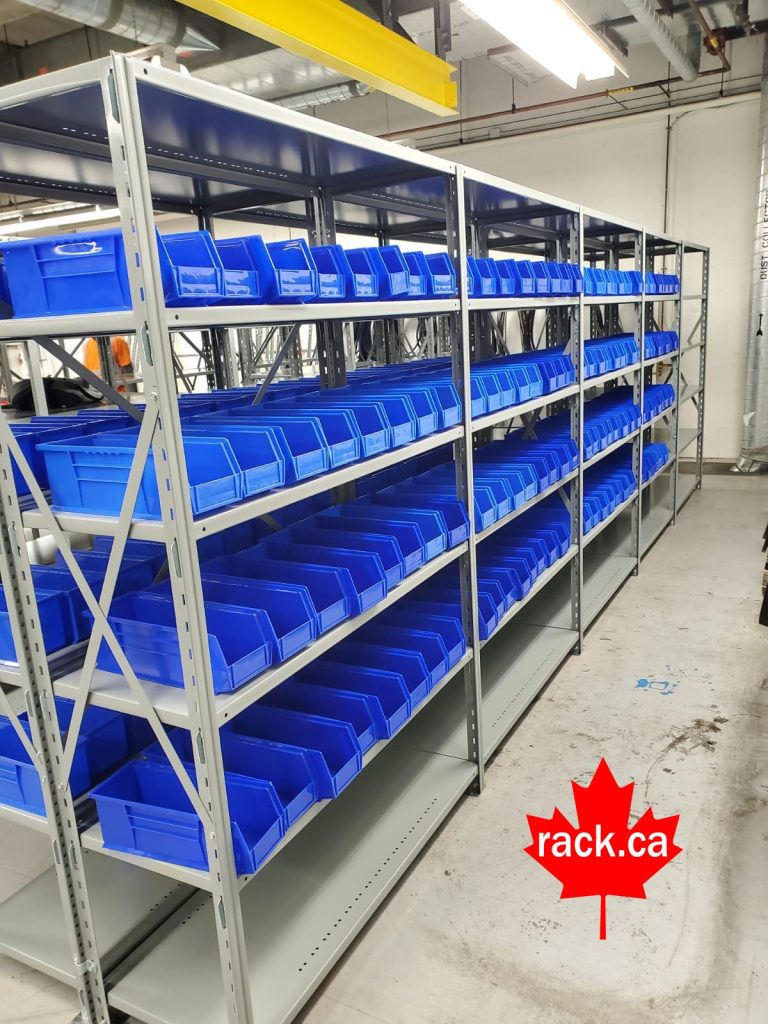Freezer warehouses operate under some of the most demanding conditions in industrial storage. Between sub-zero temperatures, constant moisture fluctuations, and heavy operational demands, your racking system faces stresses that conventional warehouses simply don’t encounter.
With the National Building Code 2025 updates now in effect, outdated freezer racking safety bars aren’t just an operational risk—they’re a compliance liability. If your cold storage facility is still relying on older racking systems, it’s time to assess whether your safety bars can handle both the physical demands and regulatory requirements of modern freezer operations.

Why Freezer Racking Systems Face Accelerated Risks
Steel faces unique vulnerabilities in freezing conditions. Here are some of the safety risks of outdated freezer racking systems:
Extreme Cold Causes Material Brittleness
Sub-zero temperatures fundamentally change how metal behaves. Steel becomes significantly more brittle below freezing, making it prone to cracking or sudden failure under loads that it would normally handle with ease. This brittleness means your safety bars may not provide the reliable backup protection they’re designed for.
Ice Buildup Reduces Stability and Traction
Ice accumulation on floors and rack components creates dangerous conditions. When pallets can’t sit properly due to ice buildup, the load distribution changes, putting unexpected stress on safety bars. This instability becomes even more dangerous with the heavy, high-stacked pallets common in maximized freezer storage.
Constant Forklift Traffic in Tight Aisles
Freezer warehouses maximize space with narrow aisles, and reduced visibility from condensation on equipment increases impact risks. These frequent collisions with racking components put additional stress on safety bars that may already be weakened by cold conditions.
Heavier, High-Stacked Pallets
Modern cold storage racking solutions push vertical limits to maximize expensive freezer space. Today’s storage demands often exceed the load-bearing capacity that older safety bars were designed to handle, creating a dangerous mismatch between system capabilities and operational reality.
Temperature Cycling from Loading Bays
Rapid temperature changes from frequent door openings create thermal stress on metal components. This constant expansion and contraction weakens fasteners, joints, and structural welds over time, reducing the overall reliability of your safety systems.
Legacy Design Limitations
Older freezer racking systems often lack the cross-bracing, welded backstops, and adjustable supports that modern codes require. Many safety bars installed years ago weren’t specifically engineered for freezing conditions or fluctuating humidity, making them unsuitable for today’s demanding cold storage environments.
What the NBC 2025 Expects from Cold Storage Racking
The updated National Building Code 2025 includes specific requirements for load tolerance, impact resistance, and safety features in commercial cold storage operations. These standards recognize the unique challenges of freezer environments and set higher benchmarks for system reliability.
Non-compliance or failure to make the necessary safety upgrades to your cold storage racking can result in significant penalties, operational shutdowns, and liability exposure if accidents occur. The code specifically addresses the performance requirements for safety systems in temperature-controlled environments, making outdated equipment a clear regulatory risk.
Warning Signs Your Freezer Racking System Is No Longer Safe
Below are some signs that your safety bars are failing.
- Rust or Corrosion on Bars: Even in cold temperatures, visible rust indicates that protective coatings have failed and structural degradation is underway.
- Bent or Misaligned Rack Frames: Distorted frames suggest impact damage or load stress that has exceeded system capacity.
- Loose or Shaky Safety Bars: Movement in safety bars indicates compromised connections that won’t provide reliable protection.
- Missing Bolts or Deteriorated Welds: Incomplete fastening systems create single points of failure in your safety network.
- Bare Metal Exposed to Moisture: Exposed steel in freezer environments will rapidly corrode and lose structural integrity.
- Patchy or Mismatched Repairs: Inconsistent repairs often indicate ongoing systemic problems rather than isolated incidents.
- No Recent Inspection: If your system hasn’t been professionally evaluated since the NBC 2025 updates, you’re operating with unknown risks.
How Modern Safety Bars Make the Difference
Today’s freezer-specific safety bars feature galvanized or powder-coated finishes specifically designed for harsh cold storage environments. Reinforced, code-tested crossbars provide reliable protection under modern loading conditions.
Modular safety bar systems offer cost-effective retrofitting options that can upgrade existing racks without complete replacement. These systems are also compatible with high-density racking configurations like push-back, drive-in, and pallet flow systems.
Canadian Rack Technologies’ Cold Storage Solutions
At Canadian Rack Technologies, our freezer racking systems are specifically engineered for cold storage demands, with galvanized and coated protection that withstands harsh freezer conditions. High load capacity designs meet both current operational needs and NBC 2025 compliance requirements.
With expert support and professional installation, we ensure your safety upgrade project minimizes downtime while maximizing protection. We provide flexible, cost-effective solutions for both new installations and existing system upgrades.
Ready to upgrade your freezer racking safety? Contact us today for modular safety bars for cold storage warehouses that meet NBC 2025 freezer warehouse standards and protect your cold storage operations. We can also provide you with a warehouse racking inspection checklist to ensure you meet all code requirements.
